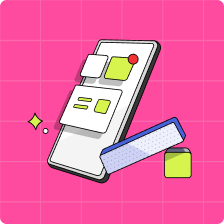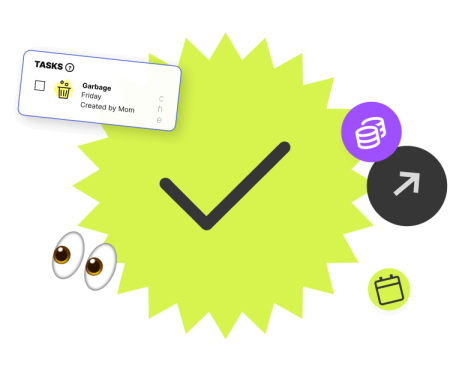Insurance might not sound like the most captivating conversation topic for teens. But, parents, you might surprise them if you say, for instance, that if their vehicle is ever stolen, they’ll be able to get another one—thanks to car insurance!
Of course, it’s not quite as simple as that, but by introducing basic insurance terms, you’ll help kids and teens grasp the concepts of policies, protection, and premiums. Besides, insurance smarts lends itself to understanding the financial system in Canada at large.
In the article below, we walk you through the most important basic insurance terms and definitions that are helpful for everyone to know. That way, you can share the info well ahead of your kid’s first car purchase or apartment rental so they’ll understand exactly what their insurance covers.
Key messages
- Insurance is designed to protect you and your belongings against the unexpected.
- Buying home and car insurance means you won’t have to pay out-of-pocket for all expenses if your home or vehicle is damaged.
- Health insurance helps protect your well-being, whereas life insurance protects your family’s finances in the event of your death.
- Learning key insurance terms can help you make better decisions when buying insurance.
What is insurance?
Insurance is protection against the unexpected. If you get into a fender-bender while driving your car, a tree falls on your house, or you become ill and have to take a break from work, insurance safeguards against having to deal with hefty expenses. And that’s great news, since those situations are stressful enough without added costs.
Typically, people buy insurance from professionals who are licensed to sell products from insurance companies. Then you pay what’s called a premium either monthly, quarterly (every three months), semi-annually (every six months), or annually, depending on the policy.
Insurance companies pool your premiums with other people’s premiums. Think of it like this: All the money is placed into a giant pot. If you need some of that money to cover your fender-bender, for instance, you file a claim to take money out of the pot. Since not all drivers get into car accidents, not everyone who is insured will need to take money out of the pot. That’s how insurance companies make money and guarantee that they can cover the costs for any eligible insurance claims.
Read more about how to teach kids about insurance.

Types of insurance
There are different types of insurance; the one you should choose depends on what you need to protect. Here are some of the main types of insurance kids should know about:
Car insurance
Also known as auto insurance, this type of policy covers your car, whether bought or leased, in the event of theft, vandalism, an accident, or damage from natural disasters. Car insurance in Canada also includes what’s called liability insurance, which will pay for the cost of damage to other vehicles or property involved, as well as medical costs if your passengers or any other people are injured in an accident.
Read more about buying a car for a teenager.
Home insurance
Buying a home is a big investment, and without home insurance, owners can be left with overwhelming bills if there’s unexpected damage from things like flood or fire. With insurance, the cost of repairs is covered. Typically, inside damage, outside damage, loss of or damage to belongings, and injuries that happen on the property are included in a home insurance policy. If you lease a property, you’ll need insurance for that, too. This type of insurance is known as tenant insurance or renter’s insurance. Like home insurance, it’ll cover you against loss or damage.
Life insurance
Many people use life insurance as a way to continue to support their families in the event of their death. For example, life insurance payments can be used to pay down the mortgage or fund children’s post-secondary education.
Life insurance policies are paid out after the policyholder’s death. That money is then given to a beneficiary—a person trusted to handle the money.
Health insurance
Canadians have public health care, which means many basic health-related expenses are already covered by our taxes; however, not everything is covered. When it comes to prescription drugs, dental and vision care, and therapy, many people turn to private or group health insurance. Often, employers will offer fully or partially paid health insurance to employees through benefits packages. Group health insurance can also be accessed via unions or even universities when you’re a student. Some Canadians also go the full private health insurance route.

12 basic insurance terms and definitions
To help make understanding insurance easier for kids, or even as a refresher for parents if your policies are coming due, here are 12 key insurance terms to know:
Appraisal
To know just how much your property can be insured for, you’ll need an authorized third-party appraiser to figure out how much that property is worth. The value of a diamond ring, for example, depends on its size, shape, and cut—plus, its worth increases over time. By examining the ring, a professional appraiser can determine three things: the ring’s market value, its replacement value for insurance purposes, and its liquidation value. If an insured ring is lost, damaged, or stolen, the owner would receive the ring’s replacement value from an insurance company.
The insurance value of a house or rental unit is based on the cost of replacing the physical home, not the home’s current resale or market value. Insurance companies can usually figure out the rebuild value based on the home’s square footage, age, location, construction materials, number of bathrooms, type of heating, etc. For this reason, a third-party appraiser typically isn’t needed if you call up an insurance company to get a new policy, though you could still get one if you’d like another opinion.
Mortgage lenders sometimes use a third-party home appraiser to make sure they don’t lend out more money than the home is worth. A financial institution also needs to know how much they could sell the house for if the homeowner defaults on payments. In this case, an appraiser would come to your home, take photos inside and out, and evaluate the overall condition of the place.
Claim/Claimant
A claim for insurance is made when a policyholder officially asks an insurance company for money to recoup any losses. For instance, if someone vandalizes your car, you’ll likely ask your insurance company to help pay for the repairs. In this situation, you’d be considered the claimant.
However, other people can also be claimants on your insurance. If you lose control of your vehicle and hit another car, the other driver can file a claim with your insurer asking for compensation. In that case, they’re the claimant.
Collision coverage
Speaking of car accidents, optional collision coverage is a type of insurance within auto insurance that will cover the cost of the damage to your car if you collide with another vehicle or object, such as a stop sign or guardrail. If a driver needs collision coverage, it’s likely that they’re at fault. As a result, this type of insurance is subject to a deductible. (See below to learn more!)
Comprehensive coverage
Comprehensive coverage is often sold with collision coverage to cover your car in the event of theft, vandalism, bad-weather events, and unexpected contact with animals on the road. This type of insurance is also subject to a deductible.
Conditions
Most contracts have terms and conditions, and insurance is no exception. When it comes to buying an insurance policy, there will be a conditions section that explains all the rules around how it works. These typically detail the responsibilities of both the person buying insurance and the insurance company.
Deductible
Before paying out a claim, insurance companies often ask for a portion of the funds to come from your pocket. This is called a deductible, and it can range from a few hundred to a few thousand dollars. However, the amount of money you’ll pay is never a surprise—it’s clearly outlined before you buy a policy.
Insured versus Insurer
Insurance primarily involves two parties: the insurer and the insured. The insurer is the insurance company that provides coverage, and the insured is the person who bought the insurance policy.
Insurable interest
When someone buys an insurance policy, they have insurable interest in the home, car, or state of health that they’re buying insurance for. Not to be confused with banking-related interest, insurable interest has to do with whether or not you would experience financial difficulty or hardship if you were to lose your home or car or become too sick to work. Insurable interest is what makes an insurance policy valid, legal, and protected from fraud. You wouldn’t buy an insurance policy to cover yourself if something happened to your cousin’s truck, for example, because you’re not at risk of financial loss—you have no insurable interest in that truck.
Market value
In insurance policies, there is often a market value clause (sometimes called “fair market value”), which explains that an insurer must pay the insured the market price of their property. What does market price mean? That’s the current price that an asset can currently be sold for. Let’s use another car insurance example: You might pay $35,000 for a new car, but over time, that car is going to decrease in value. If the car is valued at $15,000 by the time of an accident—and you need to file a claim to replace the car—you’ll only receive its latest market value (i.e., $15,000).
Policy
Your policy is your insurance agreement in the form of a written contract. It details how much you’ll pay in premiums and how much your insurance will cover.
Premium
Insurance comes at a cost, and that cost is called a premium. When you buy a policy, you’ll have to pay for that policy on a regular basis, whether that’s monthly, quarterly, annually, or semi-annually. It all depends on the conditions set out in your policy.
Quote
When you approach an insurance professional or insurance company for a policy, they first provide an insurance quote. That’s an estimate of how much insurance is going to cost based on the details you provide. For example, if you’re applying for health and dental insurance, your quote will depend on things like your age and the state of your general health.
Why your kids should understand how insurance works
Kids grow up fast. Before you know it, they’ll be driving their own car or hunting for their first apartment. Teaching them the basics of insurance beforehand will help them understand how to protect themselves financially, which all ties into smart money decisions, budgeting, and saving.
Download Mydoh and help build the foundation of financial literacy for your kids and teenagers.
This article offers general information only and is not intended as legal, financial or other professional advice. A professional advisor should be consulted regarding your specific situation. While the information presented is believed to be factual and current, its accuracy is not guaranteed and it should not be regarded as a complete analysis of the subjects discussed. All expressions of opinion reflect the judgment of the author(s) as of the date of publication and are subject to change. No endorsement of any third parties or their advice, opinions, information, products or services is expressly given or implied by Royal Bank of Canada or its affiliates.












